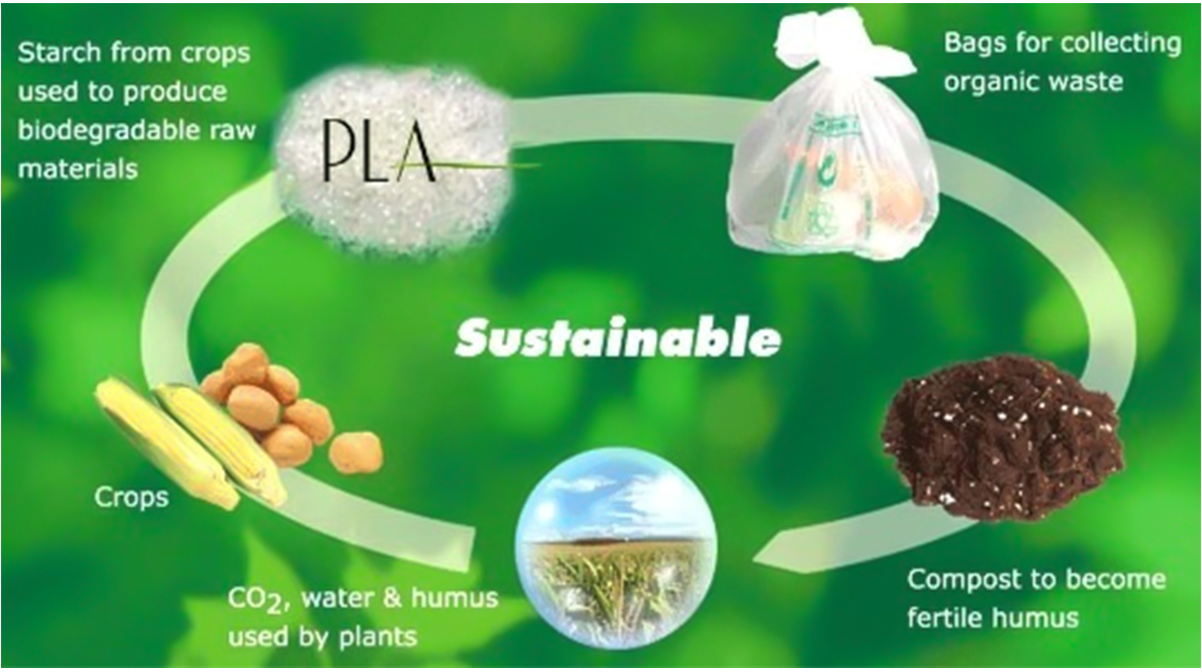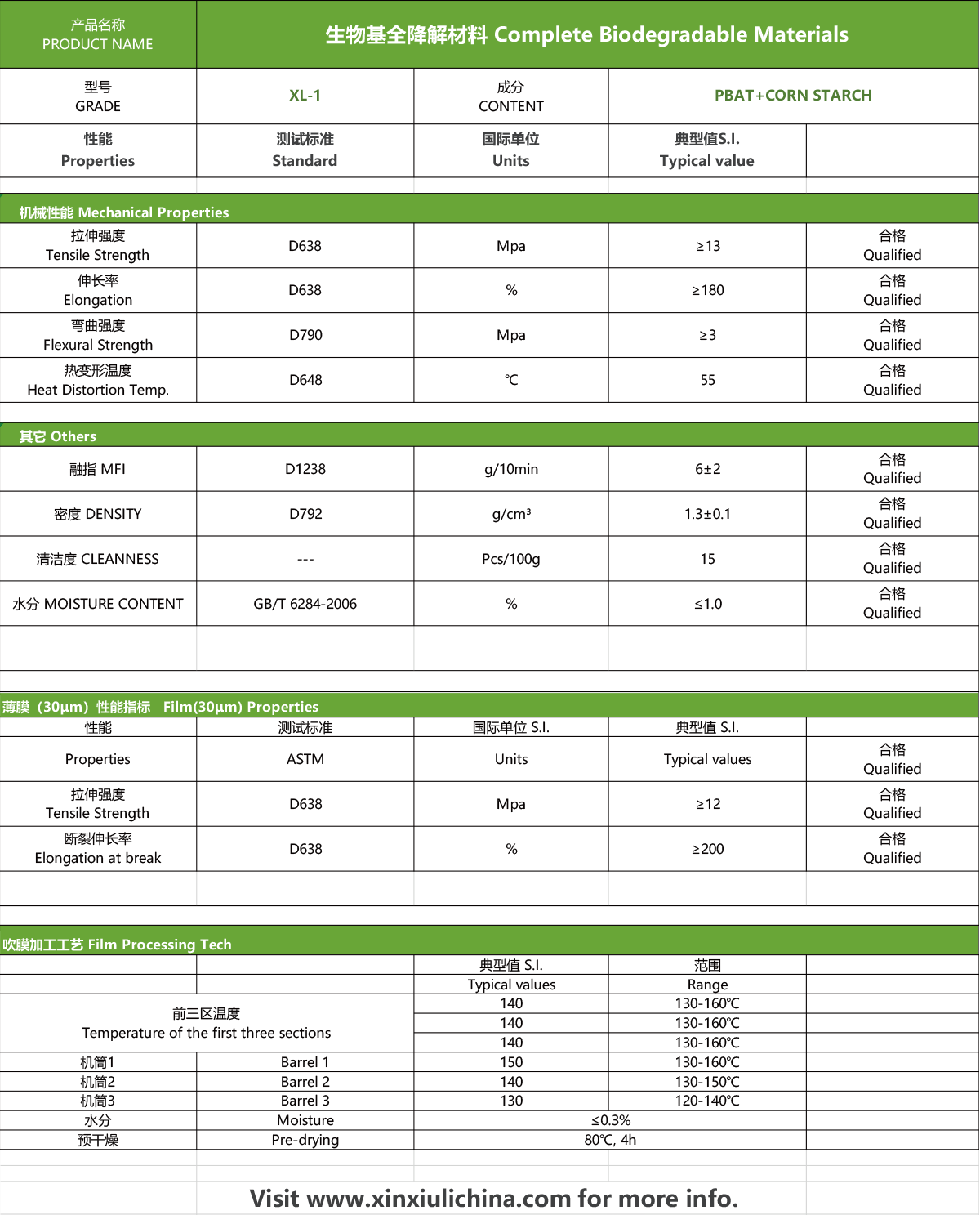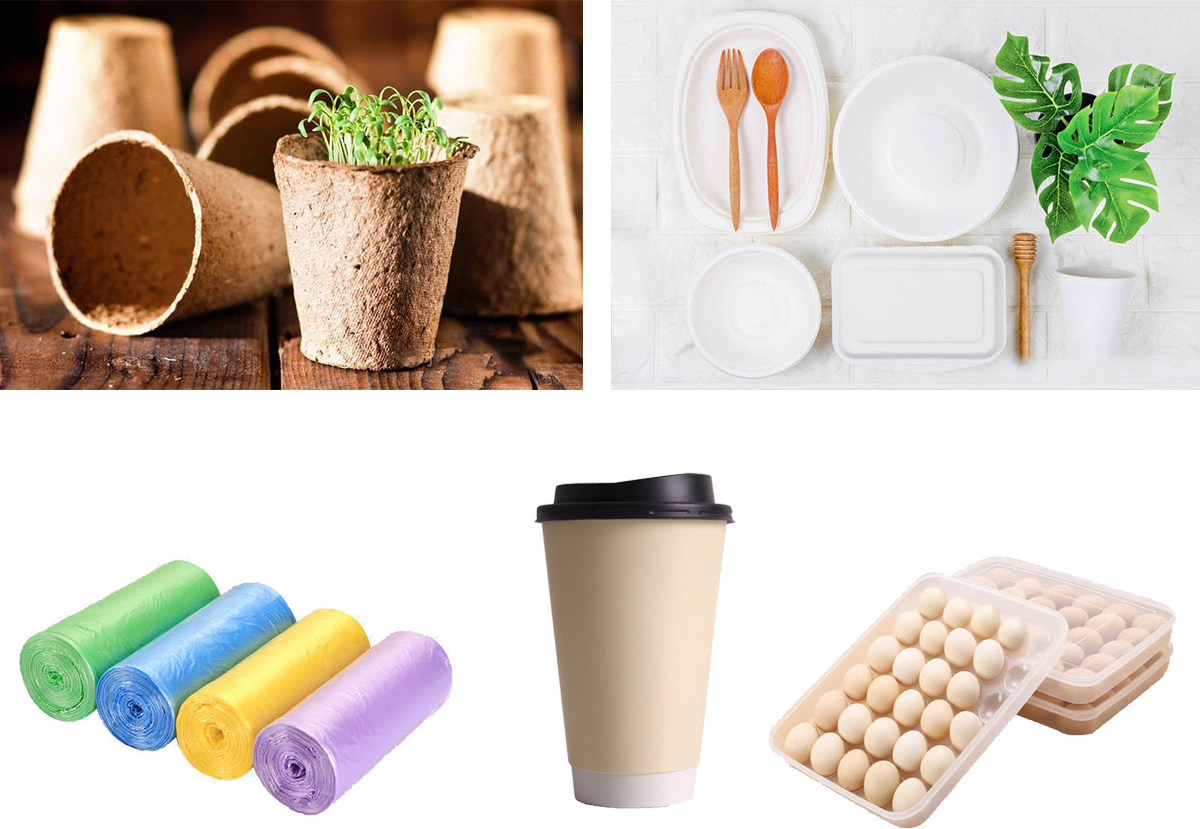





Biodegradable material is a new type of biomaterial, mainly composed of PLA, PBAT, starch and so on. The appearance is white or light yellow particles with smooth surface and uniform size. Under the condition of composting, it can be decomposed into carbo

PBAT is a kind of thermoplastic biodegradable plastics. It is a copolymer of butylene adipate and butylene terephthalate. It has the characteristics of PBA and PBT. It has good ductility, elongation at break, heat resistance and impact resistance; In addition, it has excellent biodegradability, and is one of the most active biodegradable materials in the research and market application of biodegradable plastics.

PBAT products have excellent comprehensive performance and reasonable cost performance. They can be used in packaging, tableware, cosmetic bottles and medicine bottles, disposable medical supplies, agricultural film, pesticide and fertilizer slow-release materials, biomedical polymer materials and other fields. They have a wide range of uses and good application prospects. They have become the leader in biodegradable plastic materials. PBAT is only used in composting and water body Compared with other biodegradable plastics, PBAT has excellent mechanical properties, which is close to PP and ABS plastics; PBAT also has good processability, which can be processed on the existing plastic processing equipment, and is the best one in the processing performance of degradable plastics at present. At the same time, PBA has good processing performance T can be blended with a lot of fillers such as calcium carbonate, starch and polylactic acid to obtain low-cost degradable plastic products





DuPont Inglis said, "in theory, all the 100000 chemicals we use today can be obtained from renewable carbon resources. However, in developing the future bioeconomy, we need to consider the three pillars of sustainability, that is, the balance of environmental, social and economic benefits. The high cost of degradable materials is difficult to be accepted by the market on a large scale.
In response to the call of the party and the state, in order to meet the market and customer demand, our company has developed and produced modified degradation particles based on bio base, which not only ensure the full degradation performance, but also greatly reduce the cost of degradation materials. It does not contain o-benzene plasticizer, bisphenol A and other toxic substances. The heavy metal content meets the rohs2.0 detection standard, and has obtained the European Union DIN en13432:2000, ASTM D 6400 (2012) standards degradation certification.

From cars to food packaging, from airplanes to pens, you can make anything out of plastic, which is undoubtedly the most widely used material in the world. But there is an obstacle. Plastic is a synthetic chemical substance, which does not belong to our nature, nor can it be perfectly integrated with nature. Discarded plastics are a major cause of environmental pollution, causing chaos in rivers, oceans and beaches, fish deaths, bird suffocation, reduced crop yields, and a decline in our environmental attractiveness.
Fghz [2020] No. 80, "opinions of the Ministry of ecological environment of the national development and Reform Commission on Further Strengthening the control of plastic pollution" emphasizes that plastic is widely used in production and life, and is an important basic material. Nonstandard production and use of plastic products and recycling of plastic waste will cause waste of energy resources and environmental pollution, and increase the pressure on resources and environment. Actively dealing with plastic pollution is related to people's health, ecological civilization construction and high-quality development in China. Ultra thin plastic shopping bags with a thickness of less than 0.025mm and polyethylene agricultural mulch with a thickness of less than 0.01mm are prohibited from production and sale. Non degradable plastic bags, disposable plastic tableware, disposable plastic articles for hotels and hotels, and express plastic packaging will be banned in different regions from 2020 to 2025. Degradable substitutes, including degradable shopping bags, degradable packaging film, degradable disposable straw, degradable plastic film, etc., are widely used.





From nature, back to nature

Breakthrough in cutting edge new material technology

Consultation hotline0536-3784999